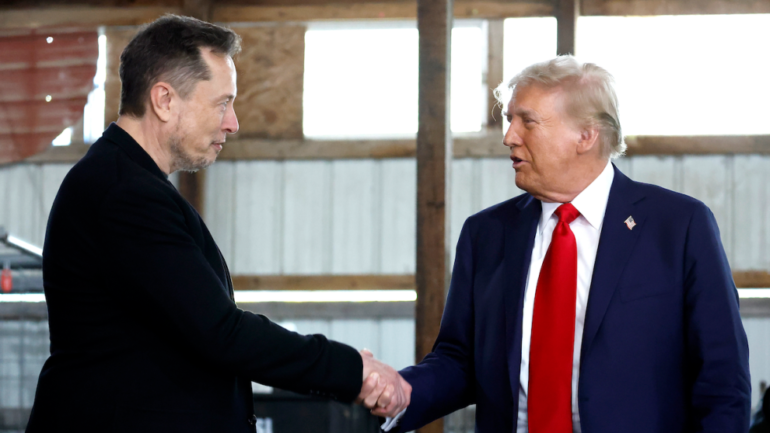US President Donald Trump on Wednesday signed an executive order aimed at easing regulations for the commercial space industry, including fast-tracking or eliminating certain environmental reviews, a move that could directly benefit Elon Musk’s SpaceX and other private launch providers.
The order, which seeks to “substantially increase” the number of US space launches by 2030, signals a significant shift toward deregulation in an industry that has seen rapid growth — and scrutiny — in recent years.
“It is the policy of the United States to enhance American greatness in space by enabling a competitive launch marketplace and substantially increasing commercial space launch cadence,” the order states.
Environmental advocates swiftly condemned the move. The Center for Biological Diversity called it “reckless,” warning it could lead to serious harm to protected ecosystems near launch sites.
“This reckless order puts people and wildlife at risk from private companies launching giant rockets that often explode and wreak devastation on surrounding areas,” said Jared Margolis, a senior attorney at the group.
Since returning to office in January, Trump has doubled down on ambitious space exploration goals, including sending humans to the Moon and Mars. Both missions are expected to rely on Starship, the massive next-generation rocket developed by Musk’s SpaceX.
However, Starship’s development has been marred by delays and fiery test failures — most recently, a routine test in June ended in an explosion. Despite these setbacks, SpaceX remains the dominant player in the global launch market, conducting over 130 launches in 2024 alone.
Wednesday’s executive order is expected to accelerate that pace.
Transportation Secretary Sean Duffy — who also currently serves as NASA administrator — was present at the signing. The order directs Duffy’s department to “eliminate or expedite” environmental reviews for space launches under its jurisdiction.
SpaceX’s Starbase launch facility in Boca Chica, Texas, has previously drawn criticism over its impact on local habitats, including areas home to endangered species. The Federal Aviation Administration (FAA) has approved an increase in annual Starship launches from five to 25, stating the expanded activity would not have a significant environmental impact.
The order also adds a political twist to an already controversial issue. Musk, once a close advisor to Trump, had a high-profile falling out with the former president in July. Despite the rift, Trump’s regulatory rollback may still align with Musk’s long-held push for fewer government constraints in space operations.
Musk’s vision of colonizing Mars hinges on the long-term success of Starship. SpaceX has adopted a “fail fast, learn fast” approach to development — a strategy that has drawn both praise for innovation and criticism for its environmental risks.
As the commercial space race intensifies, Trump’s move could reshape the regulatory landscape, favoring rapid expansion and fewer barriers — even as concerns over safety and environmental costs continue to rise.


